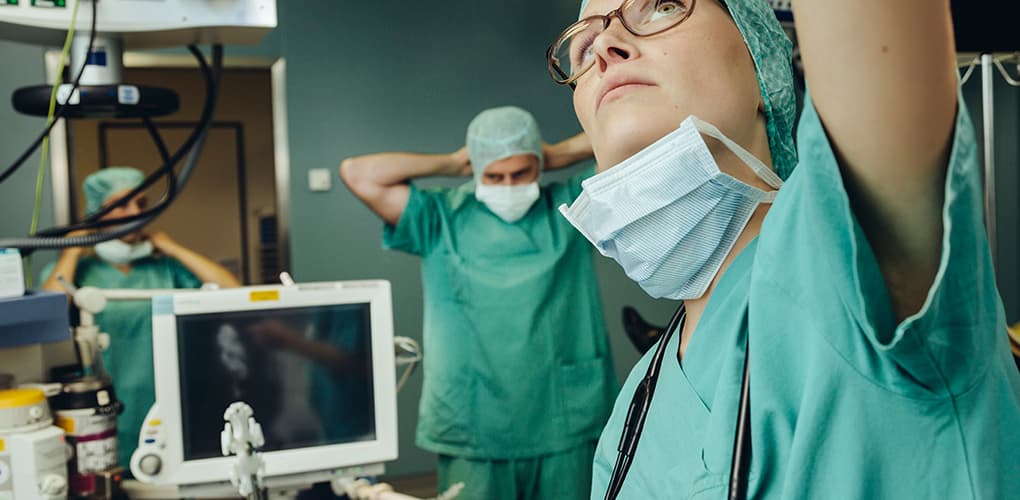< Back to Publications & Resources
Cuomo Permits Some New York State Healthcare Facilities to Resume Elective Surgeries

Editorial Note, April 30: This blog post has been updated to reflect the most recent information available from the Governor, per Executive Order 202.25.
Executive Order 202.25 permits certain hospitals in certain New York State counties to begin performing non-essential, i.e., elective, surgeries. Hospitals and other facilities, including office-based surgery locations, authorized to perform surgeries may begin to perform non-essential surgeries provided they meet certain criteria.
The criteria consists of the following:
- Eligible counties where non-essential surgeries can be performed must have total available inpatient and ICU capacity of over 30% with a total change in number of hospitalized COVID-19 positive patients during the period of April 17 – April 27 of less than 10.
- For each hospital within an eligible county, the hospital must meet the numerical criteria set forth above.
- General hospitals not meeting the criteria may seek a waiver from the New York State Department of Health (“DOH”) by submitting a plan.
- DOH shall issue guidance for non-essential surgeries that will require all pre-operative patients to test negative for COVID-19.
Here is a list of eligible counties: Allegany, Broome, Cattaraugus, Chautauqua, Chenango, Delaware, Dutchess, Essex, Franklin, Fulton, Genesee, Herkimer, Jefferson, Lewis, Livingston, Madison, Monroe, Niagara, Oneida, Onondaga, Ontario, Orleans, Oswego, Putnam, Saratoga, Schoharie, Schuyler, St. Lawrence, Steuben, Sullivan, Tompkins, Ulster, Wayne, Wyoming and Yates.
To help physicians and healthcare organizations ensure patient safety and mitigate risks related to COVID-19 when returning to elective surgeries, American College of Surgeons (ACS), American Society of Anesthesiologists (ASA), Association of periOperative Registered Nurses (APRN) and American Hospital Association (AHA) have issued a joint statement with recommendations. As quoted from the ACS, ASA, APRN and AHA guidance, facilities should consider:
Timing for Reopening of Elective Surgery
“Principle: There should be a sustained reduction in the rate of new COVID-19 cases in the relevant geographic area for at least 14 days, and the facility shall have appropriate number of intensive care unit (ICU) and non-ICU beds, personal protective equipment (PPE), ventilators and trained staff to treat all non-elective patients without resorting to a crisis standard of care.”
COVID-19 Testing within a Facility
“Principle: Facilities should use available testing to protect staff and patient safety whenever possible and should implement a policy addressing requirements and frequency for patient and staff testing.”
Personal Protective Equipment
“Principle: Facilities should not resume elective surgical procedures until they have adequate PPE and medical surgical supplies appropriate to the number and type of procedures to be performed.”
Case Prioritization and Scheduling
“Principle: Facilities should establish a prioritization policy committee consisting of surgery, anesthesia and nursing leadership to develop a prioritization strategy appropriate to the immediate patient needs.”
Post-COVID-19 Issues for the Five Phases of Surgical Care
“Principle: Facilities should adopt policies addressing care issues specific to COVID-19 and the postponement of surgical scheduling.”
Collection and Management of Data
“Principle: Facilities should reevaluate and reassess policies and procedures frequently, based on COVID-19 related data, resources, testing and other clinical information.”
COVID-related Safety and Risk Mitigation surrounding Second Wave
“Principle: Facilities should have and implement a social distancing policy for staff, patients and patient visitors in non-restricted areas in the facility which meets then-current local and national recommendations for community isolation practices.”
MLMIC advises policyholders to view the complete summary of the ACS, ASA, APRN and AHA Joint Statement and continue to follow guidance as it becomes available to ensure the safety of both staff and patients.
For all COVID-19-related developments, please visit MLMIC’s dedicated resources page.



